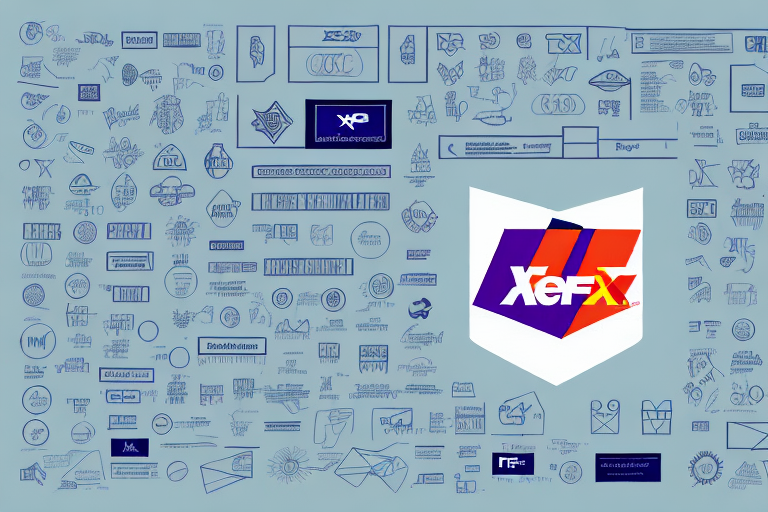Understanding the Basics of Shipment Exceptions
Shipment exceptions refer to instances where a package encounters issues during transit, leading to delays or disruptions in its delivery schedule. These exceptions can range from minor delays to significant disruptions, impacting both businesses and customers. Understanding the various factors that contribute to shipment exceptions is essential for managing and mitigating their effects effectively.
Common Reasons for Shipment Exceptions
Incorrect or Incomplete Address Information
One of the leading causes of shipment exceptions is the presence of incorrect or incomplete address details. This can result in packages being delivered to the wrong location or being returned to the sender. Ensuring accurate and complete address information is crucial to prevent such issues.
Weather-Related Delays
Adverse weather conditions, such as storms, heavy snowfall, or flooding, can significantly disrupt transportation networks. These weather-related delays are unpredictable and can affect the timely delivery of packages. Businesses should consider weather patterns when planning their shipping schedules to anticipate potential delays.
Customs and Documentation Issues
For international shipments, customs clearance is a critical step. Missing or incorrect documentation can lead to prolonged delays at customs checkpoints. Properly preparing all necessary paperwork, including customs forms and import/export licenses, is essential to avoid shipment exceptions.
Transportation and Logistical Challenges
Unforeseen events like traffic accidents, vehicle breakdowns, or logistical errors within the shipping provider can cause delays. Efficient logistics management and contingency planning are vital to address these challenges promptly.
How Shipment Exceptions Affect Your Business
Customer Satisfaction and Retention
Shipment exceptions can lead to dissatisfied customers, especially when delays affect their purchase experience. Negative experiences can result in lost revenue, reduced customer loyalty, and a tarnished reputation. According to a study by Forbes, timely deliveries are a significant factor in customer satisfaction and retention.
Operational Costs
Handling shipment exceptions often incurs additional costs, including reshipping packages, compensating customers, and managing customer service inquiries. These expenses can strain a business's financial resources and affect overall profitability.
Reputation Management
Consistent shipment issues can damage a company’s reputation. Negative reviews and word-of-mouth can deter potential customers, making it imperative for businesses to address shipment exceptions effectively to maintain a positive brand image.
The Importance of Tracking Your Shipments
Active shipment tracking is a proactive approach to managing shipment exceptions. By utilizing tracking systems, businesses can monitor the progress of their packages in real-time, identify potential delays early, and take corrective actions promptly.
Benefits of Real-Time Tracking
- Enhanced visibility into the shipping process
- Ability to anticipate and mitigate delays
- Improved communication with customers through status updates
Implementing advanced tracking solutions can lead to more efficient shipping operations and higher customer satisfaction rates.
Tips for Resolving Shipment Exceptions Quickly
Effective Communication with Shipping Providers
Maintaining open lines of communication with your shipping partners is crucial. Quickly addressing issues with carriers can expedite the resolution process and minimize delays. Establishing strong relationships with reliable carriers ensures better support during shipment exceptions.
Customer Notification and Support
Promptly informing customers about delays or issues with their shipments is essential. Providing transparent updates and offering solutions, such as reshipping or refunds, can help maintain customer trust and satisfaction.
Implementing a Robust Exception Management System
Adopting an organized system for tracking and managing shipment exceptions allows businesses to handle issues systematically. This includes documenting exceptions, analyzing patterns, and developing strategies to prevent future occurrences.
How to Prevent Shipment Exceptions in the Future
Ensuring Accuracy in Shipping Information
Double-checking address details and verifying customer information before dispatching packages can significantly reduce the likelihood of shipment exceptions related to delivery errors.
Investing in Quality Packaging
Using high-quality packaging materials protects the contents during transit, minimizing the risk of damage or loss. Proper packaging also ensures that packages meet carrier requirements, reducing the chance of rejection or delays.
Training and Process Optimization
Training staff on best practices for packaging, labeling, and documentation can enhance operational efficiency. Streamlining shipping processes reduces the potential for errors that lead to shipment exceptions.
The Role of Technology in Managing Shipment Exceptions
Automated Tracking Systems
Leveraging automated tracking technologies provides real-time insights into shipment statuses, enabling businesses to identify and address exceptions swiftly. Systems like FedEx Tracking and UPS Track offer comprehensive tracking capabilities that enhance visibility and control over the shipping process.
Data Analytics and Predictive Modeling
Utilizing data analytics allows businesses to analyze shipment data, identify trends, and predict potential exceptions. Predictive modeling can help in forecasting delays and preparing mitigation strategies in advance.
Integration with Shipping Platforms
Integrating shipment tracking with order management systems streamlines operations and ensures that all relevant data is centralized. This integration facilitates better decision-making and faster response times during shipment exceptions.
Impact of Shipment Delays on Customer Satisfaction
Shipment delays can negatively impact customer satisfaction, leading to decreased loyalty and potential loss of business. According to research by BCG, 80% of customers consider timely delivery as a critical factor in their purchase decisions.
Cost Implications
Delays often incur additional costs, such as expedited shipping fees or compensation for affected customers. These expenses can erode profit margins and affect the financial health of a business.
Reputational Damage
Consistent shipment delays can harm a company's reputation, making it difficult to attract and retain customers. Negative reviews and feedback can spread quickly, further damaging brand image.
Best Practices for Addressing and Avoiding Shipment Exceptions
Regular Process Audits
Conducting regular audits of shipping and logistics processes helps identify inefficiencies and areas prone to exceptions. Continuous improvement based on audit findings enhances operational reliability.
Strong Carrier Relationships
Building and maintaining strong relationships with reliable shipping carriers ensures better support and faster resolution during shipment exceptions. Collaborating with carriers on performance metrics can lead to improved service quality.
Comprehensive Documentation
Ensuring all necessary shipping documents are accurate and complete reduces the risk of delays, especially for international shipments. Proper documentation is essential for smooth customs clearance and compliance with regulations.
Staying Informed on Shipping Regulations
Keeping abreast of changes in shipping regulations and industry standards helps businesses adapt quickly, preventing shipment exceptions caused by non-compliance.
How to Communicate with Customers About Shipment Exceptions
Timely Notifications
Informing customers about shipment exceptions as soon as they occur demonstrates transparency and reliability. Providing immediate updates allows customers to adjust their expectations accordingly.
Personalized Communication
Sending personalized messages that address the specific needs and concerns of each customer fosters trust and shows that the business values their experience. Tailored communication can include options for reshipping, refunds, or discounts.
Providing Clear Solutions
Offering clear and actionable solutions, such as alternative delivery methods or compensation options, helps in resolving the issues effectively and maintaining customer satisfaction.
Case Studies: Real-Life Examples of Shipment Exceptions and Their Solutions
Case Study 1: Amazon's Proactive Exception Management
Amazon employs advanced tracking and predictive analytics to identify potential shipment exceptions before they occur. By proactively addressing issues, Amazon minimizes delays and enhances customer satisfaction.
Case Study 2: UPS's Efficient Exception Handling
UPS utilizes a robust exception management system that integrates real-time tracking, automated notifications, and dedicated customer support. This approach allows UPS to resolve shipment exceptions swiftly and maintain high service levels.
The Future of Logistics and Shipment Exception Management
Advancements in Artificial Intelligence
Artificial Intelligence (AI) is set to revolutionize shipment exception management by enabling more accurate predictions and automated decision-making. AI-driven systems can analyze vast amounts of data to foresee potential disruptions and suggest optimal solutions.
Increased Focus on Sustainability
Sustainability is becoming a key consideration in logistics. Businesses are investing in eco-friendly packaging, optimization of delivery routes, and reduction of carbon footprints to meet environmental goals while managing shipment exceptions.
Enhanced Real-Time Tracking Technologies
Future advancements in tracking technologies will provide even more detailed and real-time insights into the shipping process. Innovations like Internet of Things (IoT) devices and blockchain technology can enhance transparency and security, further reducing the likelihood of shipment exceptions.
Integration of Autonomous Vehicles
The integration of autonomous vehicles in logistics promises to streamline delivery processes and reduce human errors. This technology can lead to more reliable and efficient shipping, minimizing the occurrence of shipment exceptions.
Emphasis on Customer-Centric Solutions
As customer expectations continue to evolve, businesses will focus more on delivering personalized and flexible shipping options. Providing customers with greater control and visibility over their shipments will enhance satisfaction and loyalty.




















